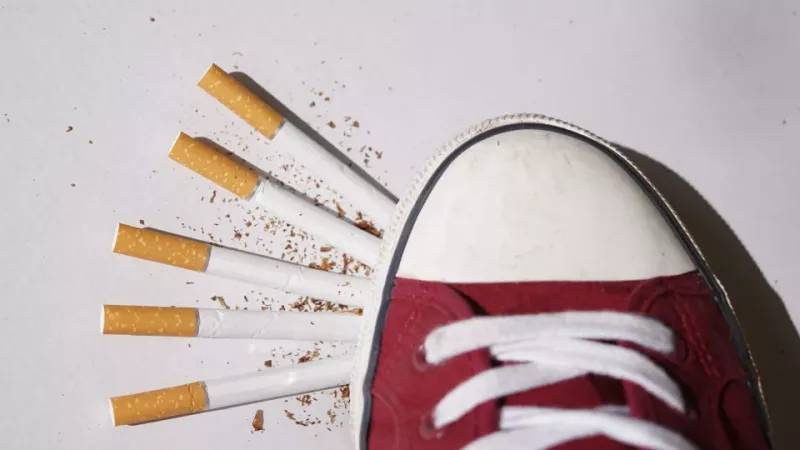Did you know that tobacco use is the leading cause of preventable death? It claims 45,000 Black lives every year. And menthol cigarettes are a big reason Black smokers die at higher rates from tobacco-related diseases like cancer, heart disease, and stroke. For decades, the tobacco industry has targeted Black communities, especially kids, with marketing for menthol cigarettes. As a result, today 85% of Black smokers use menthol cigarettes, compared to less than 10% in the 1950s.
Research shows that menthol cigarettes may be more addictive than non-menthol cigarettes. Menthol cools and numbs the throat, making it easier for kids to start smoking. In fact, 41% of high school smokers use menthol cigarettes. And youth who start using menthol cigarettes are more likely to become addicted long-term smokers.
If that makes you mad, you’re not the only one. Today’s youth are pushing back against the tobacco industry in the fight for their lives. One of them is Kayla McPike.
A Generational Thing
Before she was even born, menthol cigarettes affected Kayla’s life. Her grandmother died a painful death from her use of these products. “She was a strong, confident woman—people say I remind them of her,” Kayla says. “But I never got the chance to meet her. Everyone else in my family has their favorite moments with her, but I didn’t get to make those memories.”
Kayla has also tried to get her father to quit smoking menthol cigarettes. “I used to hide his packs in the couch cushions when I was a kid,” she says. “He struggles to quit. He has used gum, the patch, but he always starts smoking again.”
But watching her cousin die from cancer caused by smoking has made the biggest impact on her. “Her last few days, she was in so much pain, it was hard to watch,” she says. “She wasn’t even able to talk, and it all started from smoking menthol cigarettes.”
Kayla explains that it is a generational thing. You see your parents, your aunties, your uncles smoking and it makes you want to try it. “When adults do something that is harmful to their bodies, they are teaching the younger kids how to do it too,” she says.
After witnessing how damaging menthol cigarettes can be, especially to the Black community, Kayla decided to take a stand.
“I became involved in 8th grade when I was about 13 years old,” says now 20-year-old college student, who is now attending University of Wisconsin White Water. “I worked with FACT, which is a youth advocacy group that spreads the truth about tobacco. Through them, I got in touch with Campaign for Tobacco-Free Kids and became a youth ambassador.”
Awareness and Advocacy
Kayla’s goal now is to help kids—and their families—be a part of the change for the sake of their communities. “Tobacco companies have gotten very creative about how they promote these products,” she says. “Menthol is a huge thing in the Black community. These companies know that their products are harmful and yet they target their advertisements to us—especially to youth. Their target consumer is dying, and they need to replace them with a younger consumer.”
One of her passions is educating kids on the harms of tobacco use. “I wish kids knew that it’s not cool to start smoking to be in with the ‘cool’ crowd,” she says. “I want them to know that being different or original is okay but the long-term damages these products can do to you are not.”
Plus, she wants parents to know that big corporations are just looking to target their kids with menthol cigarettes and other flavored products. “It’s all about marketing, from the flavors and colors of these products to the advertisements on the Internet,” she says. “Watch your kids—watch for the signs because you could save them. Give them tools to cope with whatever they are using these products for. Overall, just be aware.”
Become the Change
Today Kayla is focused on the effort to ban menthol cigarettes. “I think it’s important to ban these products because it can help to create safer and healthier communities,” Kayla says. “It can also help take the money these big corporations are getting and pour that money in our communities.”
An FDA ban on menthol cigarettes will improve Black health, save lives, and reduce health disparities. “Once the ban takes effect, I hope that these products slowly start to die off and kids will live healthier lives with less peer pressure,” Kayla says.
She envisions a ripple effect that spreads from homes and families into the streets and neighborhoods. “I hope Black communities gain strength in what we have lost, pour money into our communities instead of these corporations,” she says. “I want my community to release the shackles of these corporations who see them as just money, not actual people.”




